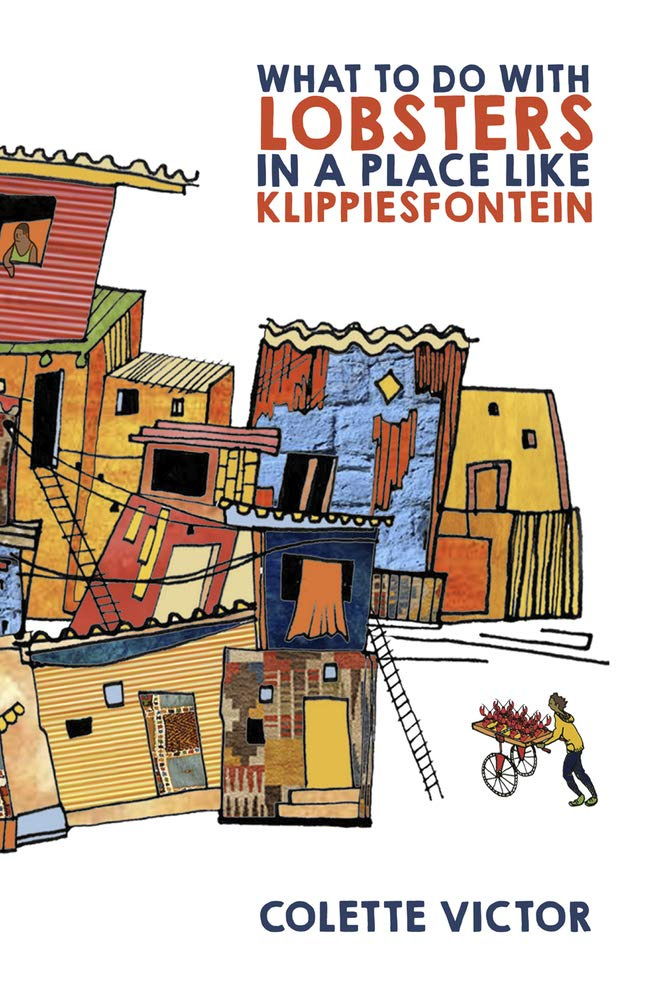Review: What To Do With Lobsters in a Place like Klippiesfontein by Colette Victor
Written for Gutter in 2015
Katie Hopkins’s hate speech would test even Voltaire’s commitment to defend to the death her right to speak, and with the Charlie Hebdo attack and the controversy around the recent American PEN prize, it often feels like our ability to deal rationally with painful issues has been dealt a number of near-fatal blows. Freedom of speech in the public sphere has morphed into the right to say what you like regardless of consequences and without the need for accuracy. Which is why a book like What To Do With Lobsters in a Place like Klippiesfontein is such a refreshing burst of clear-eyed analysis proving that when it comes to exploring the complex issues of the age, you can’t beat a good story.
Set in South Africa two decades after Nelson Mandela’s historic presidency, where many of his promises are fondly remembered in the face of a difficult reality, Klippiesfontein is a microcosm of the racial, social and gender inequalities that no amount of truth and reconciliation could erase. Daily life in the town centres around the general store run by respected Afrikaner Oom Marius, his wife Tannie Hettie and their black cleaner and dogsbody, the apparently mute Petrus.
The comic title refers to an incident at the start of the book, where Marius, in the full throws of a midlife crisis and lusting after a female customer, buys a tank of lobsters as a way to impress her. No one in Klippiesfontein has ever seen a live lobster before, let alone eaten one, and Marius’s folly looks like it will be the drive behind a farce.
It’s a brave opening, to wrong foot the reader so completely. Just as we think we know where this is going, the ground shifts. Tannie Hettie learns she has cancer, Marius must accompany her to Cape Town for treatment and decides to leave Petrus in charge. The idea of a black South African running the general store unleashes barely contained hatred. White supremacists blockade the store, townsfolk take sides and Klippiesfontein descends into civil war. Friendships end, marriages are torn apart and violence inevitably follows.
It would be very easy to paint a good versus bad, progressive versus regressive picture of white and black communities attempting to get along in post-Apartheid South Africa. It would also be easy to sidestep the whole thing and climb into analogy and metaphor – see the recent rise in popularity of South African fantasy and science fiction writing – but Colette Victor doesn’t do that. She tackles the topic directly and while her sympathies are clear, this is a novel not a political tract. Novels work best when the reader is shown multiple perspectives. Victor’s roving third person narrator gives the reader equal access to those blockading the shop as well as those barricaded in. Tensions in communities pull in a number of directions at the same time and Lobsters... is both confident enough and impartial enough to examine all sides.
There have been a number of news stories recently concerning Mein Kampf. The copyright has expired and anyone who wants to is free to reprint it. So should we? Is it better to silence the extreme voices lest their filth infect others? Or should we open them up to the disinfecting sunlight of public scrutiny? Are all opinions equal or are some more equal than others? Novels don’t answer questions, they pick them apart and show us all the angles. Despite the unbearable lightness of the title, this is a serious and timely novel.




